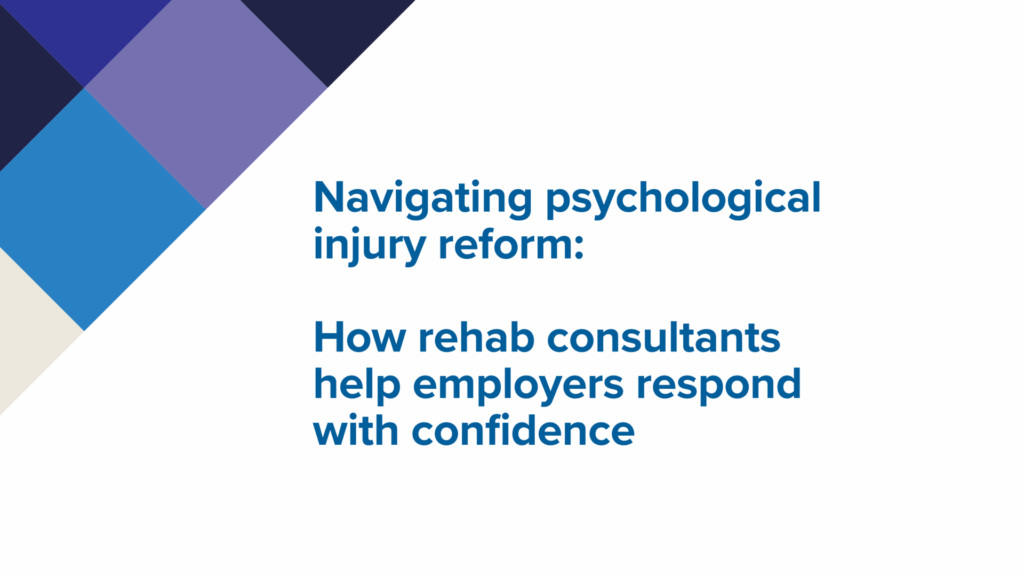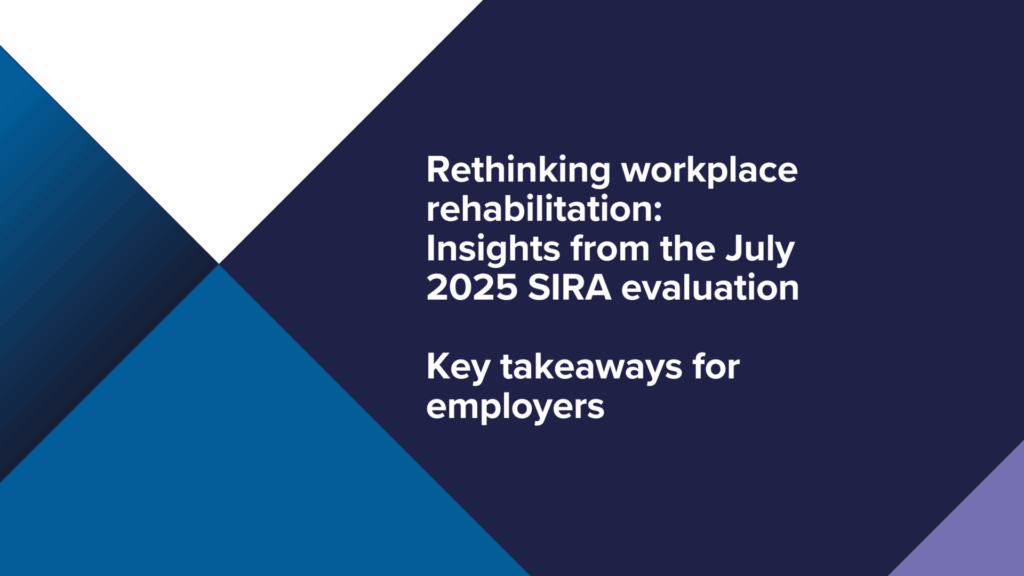Psychological injury claims often surpass physical injury claims in both cost and duration of absence from work.
This makes early intervention and treatment crucial for fostering a supportive work environment and promoting quicker recovery for affected employees.
Why early intervention matters
Early intervention plays a significant role in the recovery and overall wellbeing of employees with psychological injuries.
It not only benefits the employees but also positively impacts the workplace. The advantages of early intervention include:
- Improved recovery outcomes: Employees are more likely to recover fully and faster when they receive prompt support.
- Increased work capacity: Early treatment helps employees maintain their ability to work, reducing the need for prolonged absences.
- Reduced absence duration: The likelihood of extended time away from work decreases with timely intervention.
- Lowered recurrence of sickness: Early support can prevent further absences due to psychological issues.
- Enhanced workplace perception: Employees view their workplace more positively when they feel supported during difficult times.
For employers, the benefits extend to creating a productive and supportive work environment, demonstrating a commitment to employee wellbeing, increasing the likelihood of employees returning to work, and reducing both direct and indirect costs associated with employee absences and turnover.
Better return to work outcomes
Research highlights the importance of employer engagement in the recovery process.
A national study revealed that employees who felt their employer responded positively to their psychological injury had significantly higher return to work rates (79%) compared to those who did not feel supported (52%).
Employers who adopt a proactive and supportive approach to managing psychological injury claims demonstrate professionalism, fairness, and open communication.
This not only builds trust but also allows for better management of ongoing challenges related to the claim.
What employers can do
To effectively support employees with psychological injuries, employers should:
- Listen and offer support: Engage with the affected employee to understand their needs and provide the necessary support.
- Educate themselves: Utilise available resources to learn about mental health and best practices for supporting employees.
- Identify early warning signs: Recognise behaviours and physical signs that may indicate an employee is at risk of developing a mental illness, such as unusual behaviour, unplanned absences, disengagement from work activities, conflict with colleagues, and changes in appearance or weight.
- Intervene promptly: Address mental health hazards in the workplace and take action when risks arise to provide early assistance to employees.
- Support throughout the claims process: Continue to offer support while a claim is being lodged and determined to foster a positive return to work outcome.
In conclusion, early intervention and treatment for psychological injuries are essential for the wellbeing of employees and the health of the workplace.
By prioritising early support and maintaining open communication, employers can significantly improve recovery outcomes and create a more supportive and productive work environment.
For further information about Interact’s early intervention services please contact us.




